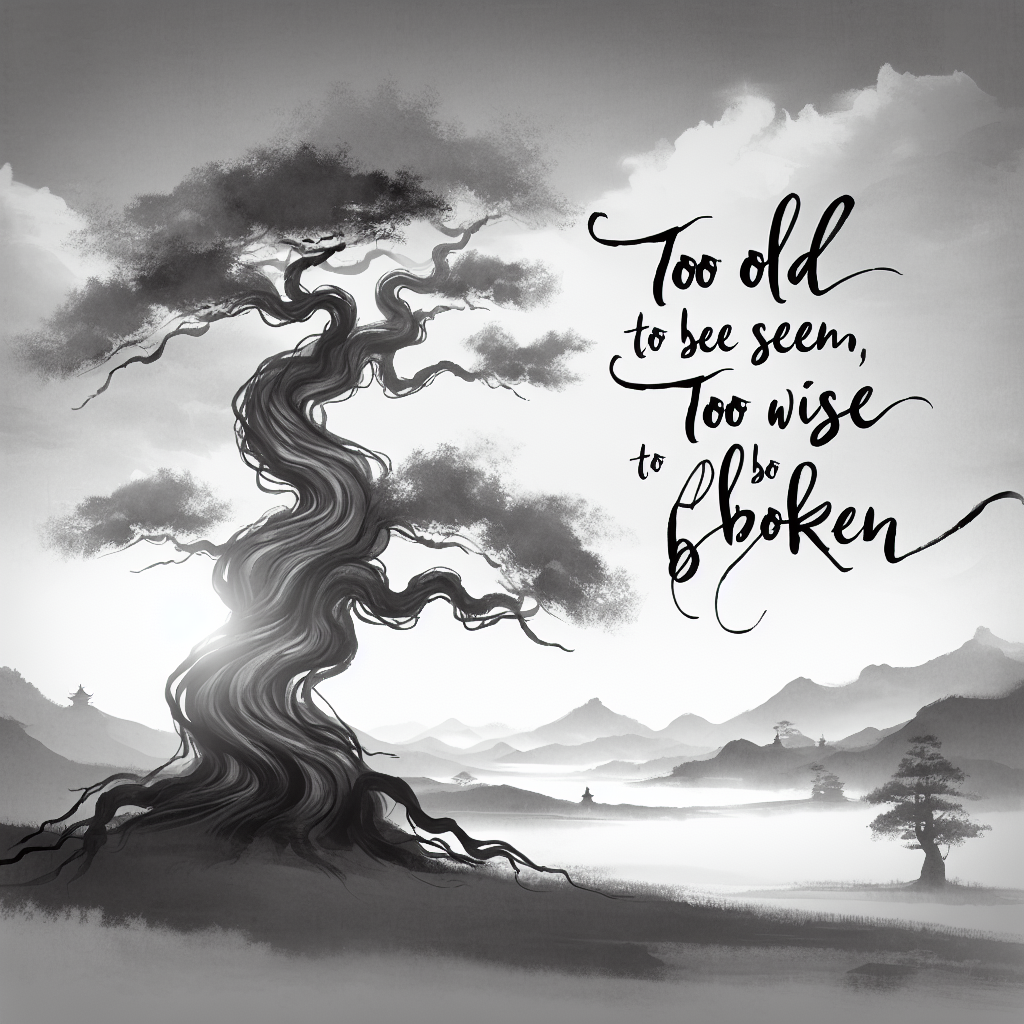
The Importance of Creativity After 60
by bernt & torsten
As we age, the importance of maintaining cognitive health becomes increasingly clear. For those over 60, the challenge is not just keeping up with the world but also nurturing our minds to stay sharp and engaged. While technology offers many conveniences, relying solely on it—like scrolling through social media or consuming news feeds—can make us dumber. To keep our brains fit, we must embrace creativity by engaging in activities that stimulate thinking and problem-solving.
The Aging Brain: A Reality Check
Aging brings many changes, and one of the most concerning is the gradual decline in cognitive abilities. Like any other muscle, the brain requires exercise to remain strong and functional. Research shows that mental stimulation can enhance neuroplasticity and the brain's ability to form new connections, which is crucial for maintaining cognitive health.
Yet, many of us fall into a pattern of passive engagement with technology. While catching up on social media or browsing the latest news may seem harmless, this passive consumption offers little to stimulate critical thinking or creativity. Instead, it can lead to cognitive stagnation, making seeking more active and engaging pursuits vital.
The Dangers of Passive Consumption
Scrolling through social media and keeping up with news feeds can be mentally exhausting without offering significant benefits. While these activities provide a sense of connection, they often lead to information overload, anxiety, and decreased attention spans. This constant barrage of information can overwhelm our cognitive abilities, leading to a decline in critical thinking skills.
Moreover, social media encourages quick consumption of bite-sized information, leaving little room for deeper thought or reflection. Instead of engaging our minds, we find ourselves skimming headlines and reacting emotionally to posts rather than processing information thoughtfully.
Embracing Creativity: The Key to Mental Fitness
So, what can we do to keep our brains in shape? The answer lies in creativity. Engaging in creative activities not only provides enjoyment but also stimulates different parts of the brain. Here are some practical ways to harness creativity for cognitive health:
1. Knitting and Crafting
Crafting activities like knitting, crocheting, or woodworking are excellent ways to engage the mind. These hobbies require focus, patience, and problem-solving skills. As you create something with your hands, you keep your brain active and experience the satisfaction of making something tangible.
Research has shown that crafting can also reduce stress and improve mood, benefiting cognitive health. Plus, the social aspect of joining a knitting club or crafting group can help keep you connected with others, which is essential for mental well-being.
2. Puzzles and Brain Games
Sudoku, crosswords, and other puzzle-based games provide a great workout for the brain. These activities challenge your problem-solving skills and help improve memory and concentration. They force you to think critically and strategize, keeping your cognitive functions sharp.
Incorporating these games into your daily routine can be as simple as dedicating 15-30 minutes daily to a puzzle. The sense of accomplishment from solving a challenging puzzle can boost confidence and cognitive ability.
3. Learning a New Skill
As we age, it’s crucial to keep learning. Whether picking up a new language, mastering a musical instrument, or trying your hand at painting, learning new skills keeps the brain engaged. These activities challenge your cognitive abilities and provide a sense of accomplishment and enjoyment.
Online platforms and community classes make it easier than ever to learn something new. Surround yourself with fellow learners for added motivation and social interaction.
4. Gardening: A Holistic Approach
Gardening is another wonderful way to stimulate the brain while enjoying the outdoors. It requires planning, problem-solving, and physical activity—all essential components of maintaining cognitive health. Additionally, tending to plants has been shown to reduce stress and improve overall well-being.
Gardening also offers a sense of accomplishment as you watch your plants grow and thrive, providing both physical and mental benefits.
5. Programming: Keeping Your Mind Alive
For those with a background in technology, programming can be a fantastic way to keep the brain active. Learning new programming languages or tackling challenging coding problems encourages logical thinking and enhances problem-solving skills.
Programming requires a unique blend of creativity and analytical thinking, making it ideal for keeping the mind sharp. Whether working on personal projects or contributing to open-source software, programming can provide a fulfilling way to engage your mind.
The Role of Social Connections
While individual activities are crucial for cognitive health, we shouldn’t overlook the importance of social connections. Engaging in creative activities with friends or family can enhance enjoyment and motivation. Whether it’s a group crafting session, a book club, or a game night, social interactions keep our minds active and our spirits high.
Building and maintaining relationships can be as beneficial to cognitive health as any intellectual activity. Engaging with others provides new perspectives, stimulating discussions, and emotional support, all of which are vital for a healthy mind.
Technology as a Tool, Not a Crutch
While technology can be a double-edged sword, it doesn’t have to be detrimental. Instead of passively consuming content, we can use technology as a tool to enhance our creativity. Online platforms provide access to courses, tutorials, and resources that can help us learn and grow.
For instance, online workshops for knitting or painting allow you to develop your skills while connecting with others who share your interests. Apps that offer brain games or puzzles can also be valuable for keeping your mind sharp.
However, the key is to remain mindful of how we use technology. Set boundaries around social media and focus on activities that engage your mind in a meaningful way.
A Balanced Approach to Mental Fitness
Maintaining cognitive health after 60 is essential for a fulfilling life. While technology offers convenience, relying solely on it can hinder our mental sharpness. Instead, we should embrace creative activities that challenge our minds, whether through knitting, puzzles, learning new skills, or programming.
The fight against cognitive decline requires a proactive approach. By incorporating engaging activities and nurturing social connections, we can keep our minds sharp and our spirits high. As we move into this new phase of life, let’s remember that creativity isn’t just a pastime; it’s a crucial ingredient for keeping our brains alive.
The Future is Bright
Aging doesn’t mean we have to become complacent. With the right mindset and activities, we can foster creativity and mental agility well into our golden years. Embracing hobbies, learning new skills, and staying socially active will allow us to thrive as we age.
So, let’s put down the smartphone, step away from the endless scroll of social media, and pick up a pair of knitting needles, a puzzle, or a programming challenge. The future is bright, and our brains will thank us for it.

The Human Brain and Its Role in Creativity, Memory, and AI
The human brain is a marvel of evolution, a universe within, teeming with thoughts, memories,...

What’s the Environmental Cost of Your Online Activities? From AI Queries to Streaming Video
Scrolling through social media, searching on Google, or chatting with an AI feels like a...

A Poem: Too Old to Be Seen, Too Wise to Be Broken
They saw my years, not the code I wrote,
Dismissed the knowledge I carried, remote.